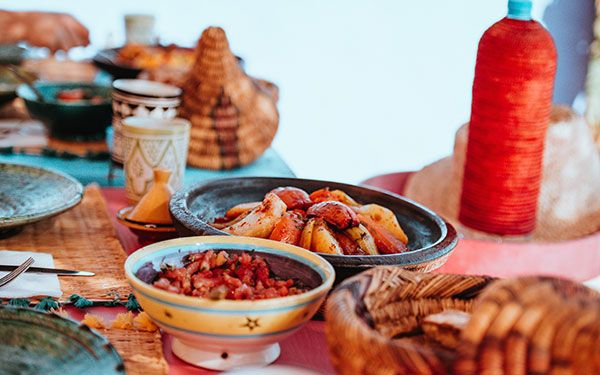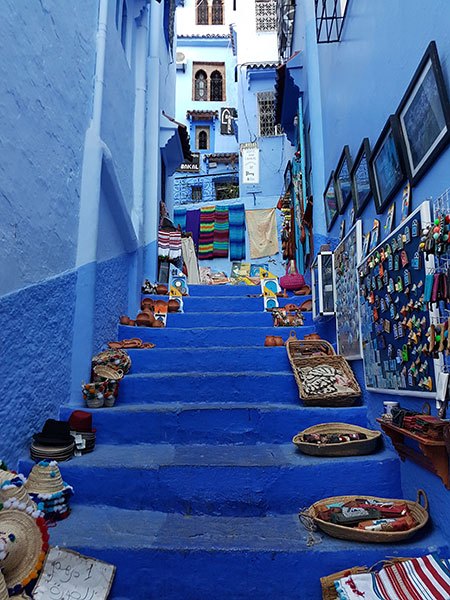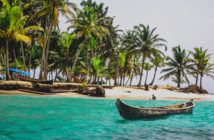Are you considering a move to Morocco from the UK?
It’s easy to understand why. This magical, colourful country has a rich and diverse history and culture, wonderful cuisine, beautiful natural landscapes and a warm climate.
It conjures up images of bustling labyrinthine souks, wide expanses of rose coloured desert, sweet mint tea, the air filled with the heady scent of spices.
Morocco has long been a favourite of travellers and expats from all over the world, so we’ve written this comprehensive guide to help you make the move from the UK to this enchanting north African kingdom…
Contents
Morocco Visa Requirements for Brits
Visiting
Luckily British passport holders don’t require a visa to enter Morocco.
It is possible for UK nationals to stay in the country for up to 90 days before needing any kind of official document.
After this time it is necessary to apply for a Residence Card.
Working
Work permits must be obtained from ANAPEC, the National Agency for the Promotion of Employment and Skills.
In order to qualify for one, British expats need to have a work contract with a Moroccan employer, who will then need to validate your employment contract with the Moroccan Ministry of Employment and the Department of Employment service for migrants.
You will also need to provide a valid passport, local obtained medical certificate less than one month old, and documentation outlining your professional skills.
The duration of your work permit will be between 1 to 3 years depending on your line of work, after which time they can be renewed.
Permanent Residency
Any Brit staying in Morocco for more than 90 days should apply to the Moroccan Immigration authorities for a Residence Card as soon as possible as the process can be a little slow.
In order to apply for a residence permit you must have a valid passport, a criminal records check from the UK, be registered with a Moroccan bank, a medical certificate issued by a local doctor, and a work permit.
Once your application has been approved you will be issued with a temporary residence permit lasting 1 or 2 years, after which time it can be renewed any number of times providing you continue to meet the required criteria
If you renew three times, you can apply for a residency permit that’s valid for 10 years.
If you are retired, a student, or married to a Moroccan spouse you are not required to produce a work permit when applying for residency.
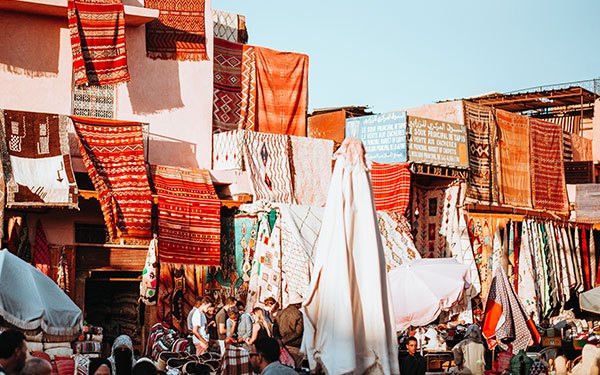
Way of Life in Morocco
Lifestyle
Blessed with an incredibly diverse history and mixed cultural heritage including
Arab, African, and European, and indigenous Berber influences, Morocco is a place that welcomes people from all over the globe.
Moroccans are generally sociable, helpful and friendly, but often don’t speak much English – the main languages spoken are Arabic and French, as well as some Spanish.
Being invited into a Moroccan home for a meal is not uncommon, and is a great chance to experience some genuine Moroccan hospitality and delicious Moroccan cuisine.
Couscous is Morocco’s national dish, but there are also richly spiced tagines, slow roasted meats, Mediterranean vegetables, hearty soups, and even b’stillah — a type of pigeon pie.
Food is traditionally served in a communal dish and is eaten with the hands.
Another tradition is a weekly trip to the hammam for a thorough rub down and cleanse. This is also a social occasion, giving people the chance to catch up with their friends after a long week.
The main religion in Morocco is Islam, and it does have an impact on daily life — particularly during Ramadan. The working day finishes later than that in the UK as there are lengthy pauses for prayer and long lunch breaks.
During Ramadan however lunch breaks are rare, and shops and offices close earlier.
The minaret calls the faithful to visit the mosque and pray to Allah five times a day, but non-muslims are not usually permitted to enter the mosques.
At these times everything comes to a halt whilst people are at prayer.
If you’re a lover of nature, Morocco is made up of beaches, desert, and mountains. Experience camel treks or dune boarding across the Sahara, hiking and waterfall hunting in the Atlas Mountains, soak up some sun on a pristine beach, or visit historic Berber villages.
Cities are full of life, and a great place to learn to haggle in the souks, but Morocco is a country with considerable poverty, so be prepared to encounter beggars asking for money — particularly in areas popular with tourists. Likewise make sure your bag and personal possessions are safe at all times.
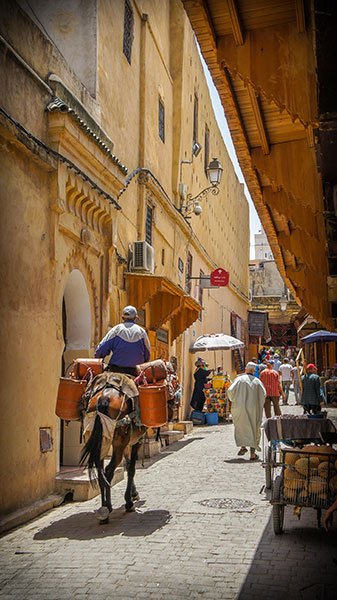
There are also some aspects of Moroccan culture which some westerners may find restrictive — particularly women.
Women are expected to dress modestly, but even so sexual harassment is common, and women are advised to avoid eye contact and being out on their own at night.
This is a male dominated society, and there are certain public places where women are separated from the men, or just simply unwelcome.
Getting Around
Perhaps surprisingly to some, Morocco has a fairly decent public transport system.
Air travel
There are domestic flights operating out of Casablanca to most major cities, which can save lots of time on long distance routes but can be expensive relative to other modes of transport.
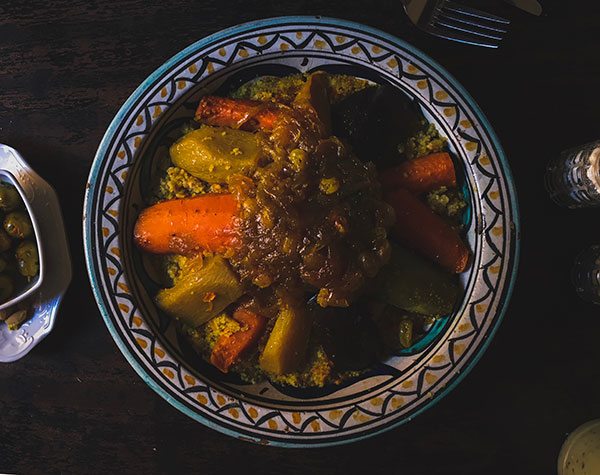
Train
There are good train routes connecting all the major cities, and trains are generally fairly reliable, comfortable, fast, and affordable.
If you want to go a little off the beaten track however, you will find train travel a little limiting.
Bus
Buses travel both long distance and local routes and are reasonably comfortable and cheap, but journey times can be very long, turning into something of a challenge when travelling for days at a time.
There are night bus services for long distance routes, which is better than travelling in scorching daytime temperatures. Private bus companies offer faster and better quality services.
Grand Taxi
A quintessentially Moroccan experience, grands taxis can carry around 6 or so passengers allowing costs to be shared, meaning you can travel with a little more luxury for a reasonable price.
Quicker than buses or trains, these taxis cover a wide variety of routes, but be prepared to wait until the taxi is full before setting off.
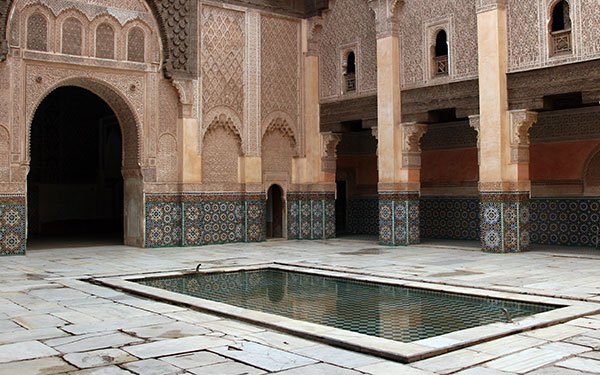
Driving in Morocco
Whilst driving around the cities can be stressful and sometimes hair raising, and considering there is decent public transport available probably isn’t worth it, having a car to explore the other areas can give you a lot of freedom.
Moroccans drive on the right, and roads between towns and cities are in generally good condition and free from other traffic, but it is important to bear in mind that Moroccan drivers are known for breaking the rules of the road and driving aggressively, resulting in a high accident rate.
Inadequate road signage can also be a problem. Police speed traps and checkpoints are common, and there are steep penalties for exceeding speed limit, and as it is legal to drive without headlights after dark, it is better to only travel during daylight.
Hiring a 4 wheel drive vehicle is a fantastic way to discover mountain and desert terrain. Numerous leading international car rental agencies operate in Morocco, but car hire can be expensive.
Weather in Morocco
Most of Morocco benefits from a tropical climate with the north and central having a climate similar to that of the Mediterranean, however this is a diverse country made up of varied landscapes, so the weather is dependent on the region.
Seasons are similar to that of the UK, with winter starting around November and lasting until January, and seeing colder temperatures and higher rainfall, whilst the summer months of June through to August can be unbearably hot with bright scorching sunshine.
Further south the climate is drier and warmer, with the south coast remaining very mild even in winter. In the west the summer temperatures in the Sahara can soar well into the mid 40 degrees Celsius, but with temperatures falling sharply at night.
In the Atlas Mountains the weather is much less predictable, with cool sunny summers and freezing winters with heavy snowfall.
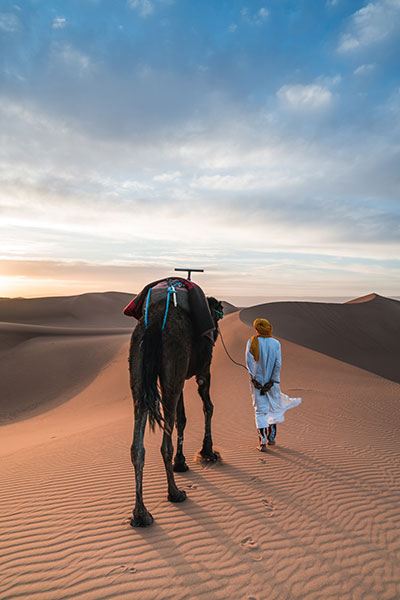
Cost of Living in Morocco
Lifestyle
Eating out is one of the greatest pleasures when living in Morocco, and with a meal in a decent restaurant costing only no more than a tenner it’s also ridiculously cheap.
Groceries are also very affordable — particularly if you shop in local markets — although alcohol and imported goods are considerably more expensive.
Likewise western brand name clothing is pricey. Most things in Morocco are cheaper than in the UK (although prices are rising), including basic utilities such as electricity, water, and internet, as well as fuel and transport.
For trips and excursions you will pay the same as any other westerner, which is to say they’re not cheap, and products and services targeted at expats can be expensive.
Here’s a handy video on what you can expect from a new life in Morocco:
Rent
Renting a property in prime city or tourist locations is expensive the world over, and Morocco is no exception. That said, rental prices are on average more than 60% cheaper in Morocco compared to the UK.
The capital city of Rabat, Casablanca and Marrakesh are the most expensive cities to live in Morocco, but it is nevertheless possible to get good quality accommodation at a reasonable price.
Healthcare
There are both private and public healthcare services in Morocco, but the majority of expats choose the more expensive private medical services as they have better facilities and equipment, more qualified doctors- – many of whom speak English — and shorter waiting lists.
It is advisable to have a good level of private health insurance when living in Morocco.
This is often provided by employers, but if this is not available to you then there are many affordable international health insurance plans available depending on your age, level of general health, and status.
Schooling
Moroccan public schools are not known for providing a high standard of education, which is just one of the reasons why expats living there with their families choose to send their children to private international schools.
International schools guarantee excellent tuition in multiple languages including English, and follow a curriculum more similar to the in the UK.
This level of private education does come at a cost however, with school fees ranging anywhere from about £3000 to £15000 per academic year.
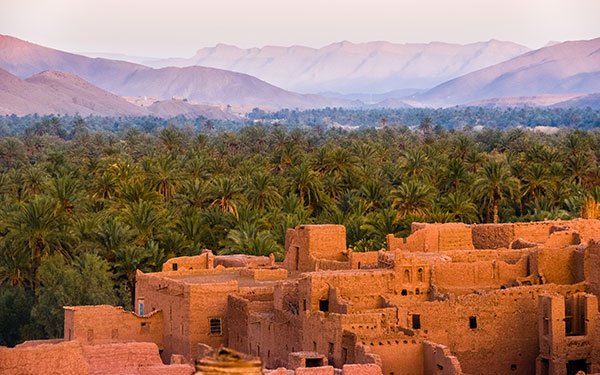
Popular Areas for Brits
Marrakech
Famed for Jemaa el Fna where sundown brings a host of exotic entertainments in the form of jugglers, snake charmers, dancers, and other delights, Marrakech is reminiscent of something out of an Indiana Jones film.
Add to that stunning rose coloured architecture, grand palaces, atmospheric souks, and cosmopolitan restaurants and boutiques it is easy to see why Marrakech continues to delight travellers and expats alike.
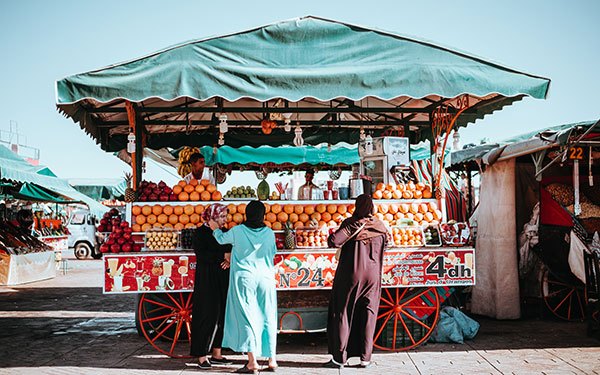
Rabat
Morocco’s capital city is something of an unsung hero.
This is an elegant city, with a laid back pace, clean and pleasant streets, and an attractive beach, as well as a charming walled Medina with some fantastic shopping to be had.
One of the nicest things about Rabat is the lack of tourists, which adds to the chilled out vibe.
Fes
Largely considered Morocco’s cultural and spiritual heart, the opulent city of Fes is bursting with things to see and do — from the oldest and largest Medina in North Africa, to decadent palaces, chaotic markets,museums, impressive mosques, and colourful tanneries.
Outside of the Medina walls, the Ville Nouvelle has thoroughly modern shops, cafés, and restaurants to enjoy.
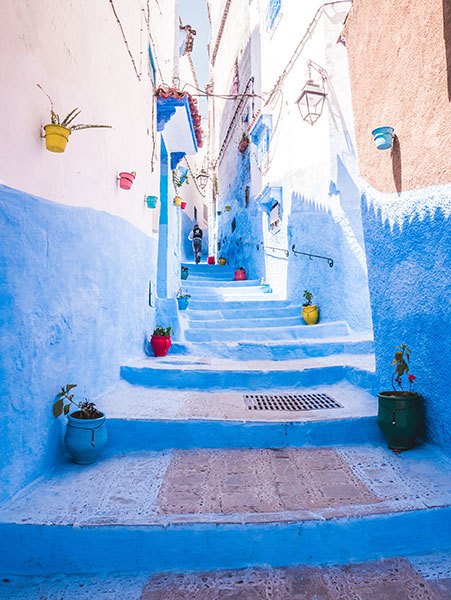
Casablanca
One of the most popular locations in Morocco for expats, Casablanca may not be the country’s most beautiful city, but it more than makes up for that with a vibrant, youthful culture, swish beach-side suburbs, cosmopolitan lifestyle, and fantastic creative and business opportunities.
Essaouira
This haven of whitewashed, blue shuttered buildings, endless azure sea, and deliciously cool breezes is the perfect relaxation destination.
Home to fishermen, artists, boat builders and more, Essaouira is a fine spot with galleries, shops, and wonderful seafood — plus in summer its a top wind and kite surfing destination.
Tangier
This cosmopolitan coastal city has long been a haunt of rock stars, actors, and artists.
Overlooking the Strait of Gibraltar and Southern Spain, Tangier has a distinctly bohemian feel complete with palm fringed boulevards, food caught fresh from the sea, a sparkling new marina, retro hotels and cafés, palaces, boutiques, and more.
Agadir
Morocco’s premiere beach resort, Agadir boasts some of the best beaches and weather in the country.
This is a chilled out city popular with tourists — particularly families — who come here all year round to laze on the white sands, stroll along the pretty promenade, and soak up the sunshine.
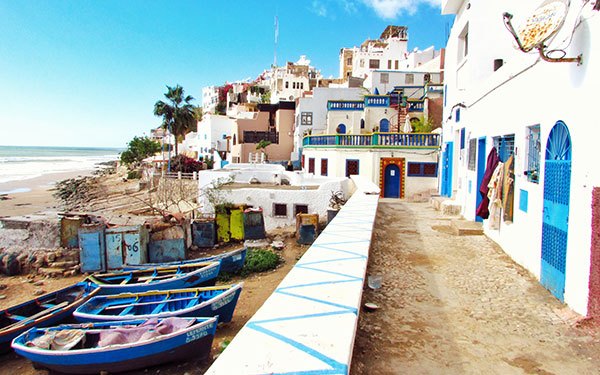
Jobs in Morocco for British Expats
There are some good opportunities for British expats wanting to live and work in Morocco.
The country’s economy is experiencing something of a mini boom, and the Moroccan government is currently encouraging foreign businesses to invest in the country, which is causing a rapid rise in the number of international companies here.
Although English is becoming more widely spoken in business circles here, a good level of standard Arabic or French will open up even greater opportunities when looking for employment.
The biggest sectors recruiting right now include telecommunications, IT, technology, business, agriculture, and tourism.
Are you thinking about moving to Morocco from the UK?

